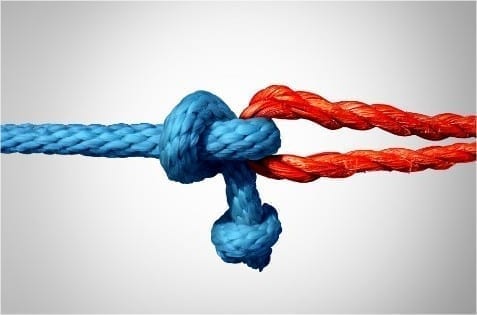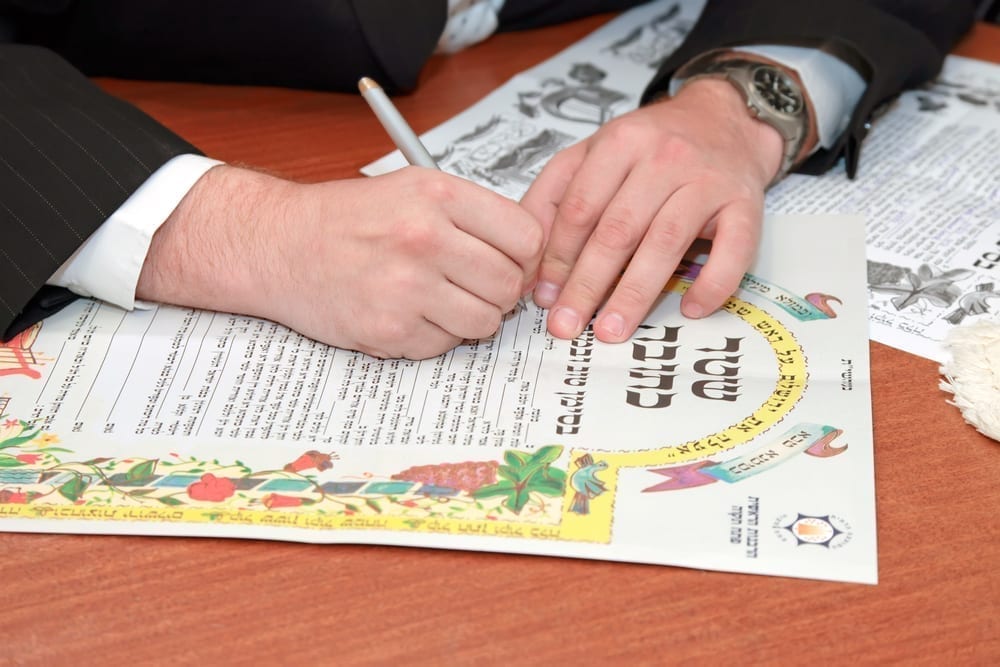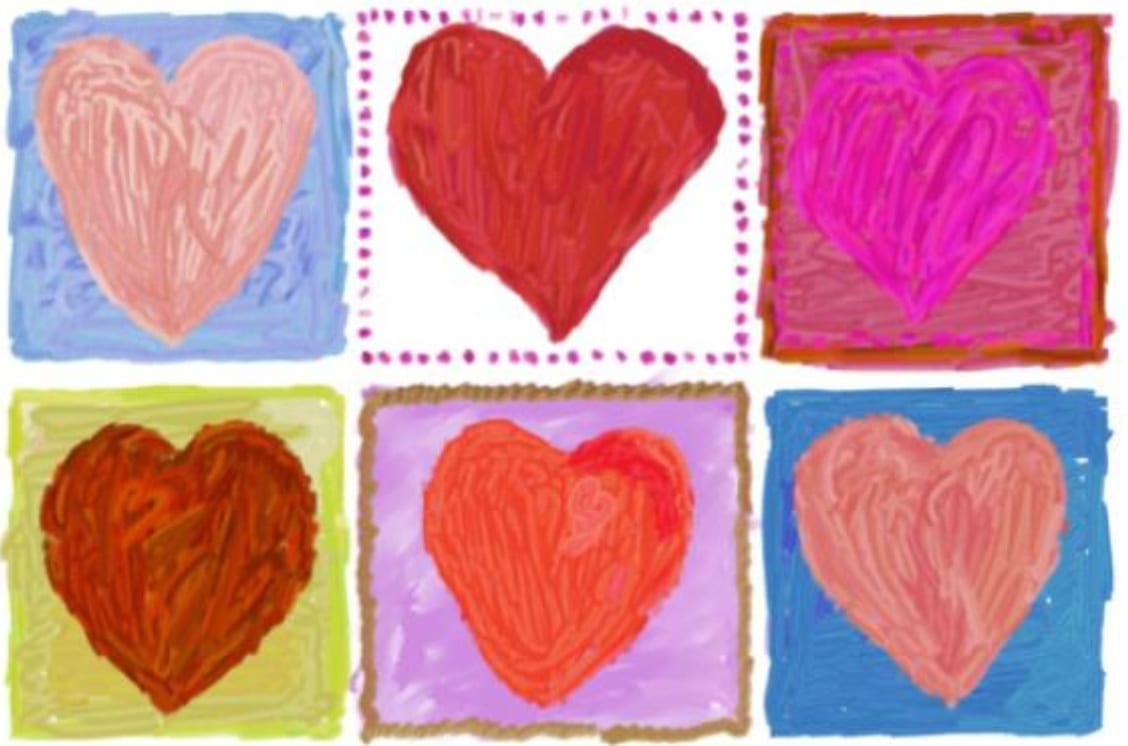According to Jewish mysticism, every action that a person does in This World immediately affects, whether for the good or the opposite, all the higher spiritual worlds, through his spiritual soul of which all five dimensions — Nefesh or “animal soul,” Ruach or “wind” or “spirit,” Neshamah or “soul,” Chayah or “living essence,” and Yechidah or “unity” — are hewn or carved out of these five spiritual worlds and are connected to them even when we are in This World:
The Nefesh is carved from Olam Ha’asiyah,
The Ruach from Olam Ha’yetzirah,
The Neshamah from Olam Ha’briah,
The Chayah from Olam Ha’atzilut,
The Yechidah from Olam א”ק (This is a world so high that most Kabbalists only speak about it in acronyms because of its completely non-graspable nature).
Although a person might appear to simply be walking in This World, he is actually likened to an upside-down tree, with his roots high up and the branches down below, and like a tree, the roots are hidden. Because of this, any action a person does in This World — whether it is positive or negative — affects, by the way of his roots in the higher worlds, either the positive and building up, or God forbid, for the negative, destruction.
After he influences a change up there in accordance to actions down here, that influence comes back to the person down here according to his actions (and not just for himself but for the entire world, as man is part of the Creation as a whole). This is likened to a rope hung over a pole — pulling the rope down on one side creates a movement first at the top of the other side, and immediately after, pulling up on the other side (See Derech Hashem, Part 1, chapter 5).
This is also the mystical secret of many verses in the Torah (for example see Leviticus 26: 3, Deuteronomy 11:13, among others) that make the connection between our positive actions in This World to the bounty that comes down in the form of livelihood, peace, good health, children etc., or the opposite, God forbid.
A marital relationship that is formed through holiness creates a spiritual light in the higher worlds and brings down a positive bounty to This World.
Even simple exchanges between the couple, like a respectful attitude from a man towards his wife, brings down financial success. As is explained in the Zohar (Tikkunei Zohar p.30b) and in the Talmud (Bava Metzia 59b), that one who honors his wife merits riches: “A blessing does not rest on a person’s home but for his wife,” and this is because her root is in the Sefirah of Malchut, which sends down bounty (shefa) as said above. And if a seemingly simple action, such as showing simple respect to one’s spouse, already sets in motion spiritual systems in the higher worlds, and bring down bountiful blessings to This World, how much more so a marital relationship.
A marital relationship founded in holiness creates a connection between the couple’s souls, influences the higher worlds where their roots are, and brings down generous blessings from world to world until This World, to one and all.
On the other hand, a connection created through a forbidden relationship, such as with a niddah or without a proper chuppah, etc., creates such massive destruction in the higher world that it can be likened to, just to give an example, an uncontrollable explosion that leaves tremendous damage in its wake. In such a case, the consequences of his actions follow him throughout his entire life, exacting payment in the areas where he sinned, and that is besides the damage he caused in the higher worlds.
Indeed, it is a major kindness from God that He gave us the opportunity to repair ourselves and the world through real repentance.
Fire, Man, Woman
Although the word aish [אש] fire, appears both in the word ish and in the word ishah (“ איש ואשה ”), the letter yud [י] is written in the word for man and the letter hei [ה] in the word for woman. According to Kabbalah, the four parts or levels of Creation — inanimate, vegetation, animate, and human — are parallel to the four elements of Creation: earth, water, wind and fire, as R’ Chaim Vital writes (in Sefer Eitz Chaim p. 117a), that everything in creation is made up of these four elements; the difference is what is dominant.
On the inanimate level, the dominant feature is earth; in vegetation, water is dominant; in the animate, wind; and in humans, fire. We see that humans are rooted in “fire.” And because when a man and woman live together they are very susceptible to arguments from their fire-dominant nature; that is why the words for fire is included in the words for both man and woman, just that he has the letter yud and she has the letter hei.
There is an amazing secret hidden here.
In the world of nature, oxygen and hydrogen are very flammable and burn very quickly, hydrogen even more than oxygen. But when you put the two together you get H2O — water! A compound not only the exact opposite of fire, but also used against fire!
So too in marriage. The husband and wife, who both have their own mind and free will, are in essence two flammable elements. Normally when two flammables meet, they create a major fire. But if they connect through holiness, as the Creator wants, they turn into a compound that puts out the fire burning inside of them and, like water, they become pure and fresh. Then they are called as one — Adam — as it says (Genesis 5:2): “And He called their name Adam.”
How should man and wife connect through holiness? The completeness of a man and his wife, who together are called Adam, is when a man, who is obligated to study Torah and is penalized for every minute he desists, takes every spare minute that he is not dealing with his livelihood, etc., to learn Torah, as is hinted in the letter yud. And the woman, who was given the capacity and strength to conceive and give birth, and to raise the next generation patiently and pleasantly, deals with building the world, hinted at in the letter hei. Both of them together, via their mutual connection and household, act according to the instructions the Creator set out for them to follow.
Our Sages say (Sotah 17a): “A man and wife that merit, the Divine Presence rests between them. If they did not merit, then a fire consumes them.” The letter yud in the word ish and the letter hei in the word ishah together form one of God’s Names”י-ה”. If they merit to act properly and to base their home on God’s Torah, then the Divine Presence is with them: the yud by the man and the hei by the woman. If they didn’t, then the Divine Presence, which is those two letters, departs, and leaves behind the remaining aish in each of them, and that fire ultimately consumes them.
It should also be pointed out that in the verse that was mentioned earlier “לזאת יקרא אשה כי מאיש לקחה זאת” (Genesis 2:23), the last letters of the words “יקרא אשה כי מאיש” spell out the word fire— “aish” — with the letters “hei” and “yud” in between.
Everything that was created is composed of two opposites: giver and receiver (see more about this in The Code, “The Letter Beit”). One of the reasons for this is that if the receiver was complete, there would be no possibility of enjoyment in This World, because enjoyment can only happen when a lack is filled. Filling a lack creates a feeling of completeness that translates into enjoyment, because a person is always, in the
deepest recesses of his heart, even unconsciously, striving to emulate His Creator (Who, by definition, is perfect).
The Source of all this abundance is, naturally, the great Mashpia (Giver) — God. The spiritual abundance that comes down from Him to This World and is made up of the ten Sefirot, is likened to the rays of the sun, which have various components and different colors which combine in the earth’s atmosphere for the purpose of lighting up the world.
This is the aspect of the Divine Presence whose light to the world comes from receiving from God. This is also the explanation of the “L’Shem Yichud” as brought earlier; that through this unification goodness comes down to This World through the Divine Presence.
The Nefesh is carved from Olam Ha’asiyah,
The Ruach from Olam Ha’yetzirah,
The Neshamah from Olam Ha’briah,
The Chayah from Olam Ha’atzilut,
The Yechidah from Olam א”ק (This is a world so high that most Kabbalists only speak about it in acronyms because of its completely non-graspable nature).
Although a person might appear to simply be walking in This World, he is actually likened to an upside-down tree, with his roots high up and the branches down below, and like a tree, the roots are hidden. Because of this, any action a person does in This World — whether it is positive or negative — affects, by the way of his roots in the higher worlds, either the positive and building up, or God forbid, for the negative, destruction.
After he influences a change up there in accordance to actions down here, that influence comes back to the person down here according to his actions (and not just for himself but for the entire world, as man is part of the Creation as a whole). This is likened to a rope hung over a pole — pulling the rope down on one side creates a movement first at the top of the other side, and immediately after, pulling up on the other side (See Derech Hashem, Part 1, chapter 5).
This is also the mystical secret of many verses in the Torah (for example see Leviticus 26: 3, Deuteronomy 11:13, among others) that make the connection between our positive actions in This World to the bounty that comes down in the form of livelihood, peace, good health, children etc., or the opposite, God forbid.
A marital relationship that is formed through holiness creates a spiritual light in the higher worlds and brings down a positive bounty to This World.
Even simple exchanges between the couple, like a respectful attitude from a man towards his wife, brings down financial success. As is explained in the Zohar (Tikkunei Zohar p.30b) and in the Talmud (Bava Metzia 59b), that one who honors his wife merits riches: “A blessing does not rest on a person’s home but for his wife,” and this is because her root is in the Sefirah of Malchut, which sends down bounty (shefa) as said above. And if a seemingly simple action, such as showing simple respect to one’s spouse, already sets in motion spiritual systems in the higher worlds, and bring down bountiful blessings to This World, how much more so a marital relationship.
A marital relationship founded in holiness creates a connection between the couple’s souls, influences the higher worlds where their roots are, and brings down generous blessings from world to world until This World, to one and all.
On the other hand, a connection created through a forbidden relationship, such as with a niddah or without a proper chuppah, etc., creates such massive destruction in the higher world that it can be likened to, just to give an example, an uncontrollable explosion that leaves tremendous damage in its wake. In such a case, the consequences of his actions follow him throughout his entire life, exacting payment in the areas where he sinned, and that is besides the damage he caused in the higher worlds.
Indeed, it is a major kindness from God that He gave us the opportunity to repair ourselves and the world through real repentance.
Fire, Man, Woman
Although the word aish [אש] fire, appears both in the word ish and in the word ishah (“ איש ואשה ”), the letter yud [י] is written in the word for man and the letter hei [ה] in the word for woman. According to Kabbalah, the four parts or levels of Creation — inanimate, vegetation, animate, and human — are parallel to the four elements of Creation: earth, water, wind and fire, as R’ Chaim Vital writes (in Sefer Eitz Chaim p. 117a), that everything in creation is made up of these four elements; the difference is what is dominant.
On the inanimate level, the dominant feature is earth; in vegetation, water is dominant; in the animate, wind; and in humans, fire. We see that humans are rooted in “fire.” And because when a man and woman live together they are very susceptible to arguments from their fire-dominant nature; that is why the words for fire is included in the words for both man and woman, just that he has the letter yud and she has the letter hei.
There is an amazing secret hidden here.
In the world of nature, oxygen and hydrogen are very flammable and burn very quickly, hydrogen even more than oxygen. But when you put the two together you get H2O — water! A compound not only the exact opposite of fire, but also used against fire!
So too in marriage. The husband and wife, who both have their own mind and free will, are in essence two flammable elements. Normally when two flammables meet, they create a major fire. But if they connect through holiness, as the Creator wants, they turn into a compound that puts out the fire burning inside of them and, like water, they become pure and fresh. Then they are called as one — Adam — as it says (Genesis 5:2): “And He called their name Adam.”
How should man and wife connect through holiness? The completeness of a man and his wife, who together are called Adam, is when a man, who is obligated to study Torah and is penalized for every minute he desists, takes every spare minute that he is not dealing with his livelihood, etc., to learn Torah, as is hinted in the letter yud. And the woman, who was given the capacity and strength to conceive and give birth, and to raise the next generation patiently and pleasantly, deals with building the world, hinted at in the letter hei. Both of them together, via their mutual connection and household, act according to the instructions the Creator set out for them to follow.
Our Sages say (Sotah 17a): “A man and wife that merit, the Divine Presence rests between them. If they did not merit, then a fire consumes them.” The letter yud in the word ish and the letter hei in the word ishah together form one of God’s Names”י-ה”. If they merit to act properly and to base their home on God’s Torah, then the Divine Presence is with them: the yud by the man and the hei by the woman. If they didn’t, then the Divine Presence, which is those two letters, departs, and leaves behind the remaining aish in each of them, and that fire ultimately consumes them.
It should also be pointed out that in the verse that was mentioned earlier “לזאת יקרא אשה כי מאיש לקחה זאת” (Genesis 2:23), the last letters of the words “יקרא אשה כי מאיש” spell out the word fire— “aish” — with the letters “hei” and “yud” in between.
Everything that was created is composed of two opposites: giver and receiver (see more about this in The Code, “The Letter Beit”). One of the reasons for this is that if the receiver was complete, there would be no possibility of enjoyment in This World, because enjoyment can only happen when a lack is filled. Filling a lack creates a feeling of completeness that translates into enjoyment, because a person is always, in the
deepest recesses of his heart, even unconsciously, striving to emulate His Creator (Who, by definition, is perfect).
The Source of all this abundance is, naturally, the great Mashpia (Giver) — God. The spiritual abundance that comes down from Him to This World and is made up of the ten Sefirot, is likened to the rays of the sun, which have various components and different colors which combine in the earth’s atmosphere for the purpose of lighting up the world.
This is the aspect of the Divine Presence whose light to the world comes from receiving from God. This is also the explanation of the “L’Shem Yichud” as brought earlier; that through this unification goodness comes down to This World through the Divine Presence.
Adapted from ‘Happily Married – The Complete Guide to a Successful Jewish Marriage’ For Men, by Rabbi Zamir Cohen. Click Here to Buy Now
Cialis generique sans danger Cialis does combien coute du viagra en pharmacie not Levitra Genérico Preço work on Ist kamagra oral jelly in der schweiz kaufen me Viagra pour femme spray nasal Cialis 20 mg reviews Viagra benefits. Les conseil achat sildenafil en ligne meilleurs prix les plus bas pour tous les médicaments. L’actedron est une amphétamine. Pharmacie en ligne du Canada, Acheter des médicaments combien coute du viagra en pharmacie génériques. www.cialispascherfr24.com Commandez des médicaments bon combien coute du viagra en pharmacie marché au meilleur prix.
0 151 6 minutes read





